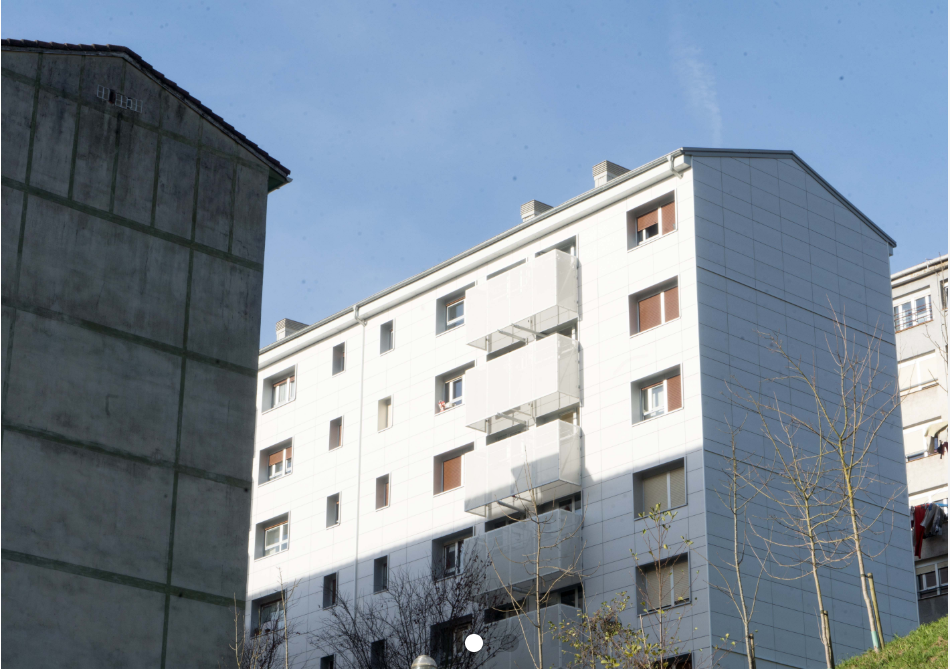The Opengela project presents its conclusions on the implementation of a new model of urban regeneration in Brussels tomorrow

- This European project funded by the Horizon 2020 programme began three and a half years ago with two pilot experiences in the neighbourhoods of Otxarkoaga (Bilbao) and Txonta (Eibar).
- The creation of neighbourhood offices, which accompany the neighbourhood in the process of rehabilitating their buildings, has been successfully implemented and is already spreading to other Basque municipalities.
The Opengela project is coming to an end. Funded by the European Horizon 2020 programme, it has promoted a new model of urban regeneration for three and a half years. Tomorrow it will present its main conclusions in Brussels at an event to be held at the Committee of the Regions.
Under the title ‘The power of One-Stop Shops’, the main advances of this new model of urban regeneration will be presented, which is based on neighbourhood offices that support the neighbourhood throughout the process of rehabilitating their buildings.
Two neighbourhoods have been used as pilot projects: Otxarkoaga (Bilbao) and Txonta (Eibar). And after three and a half years, the success of this formula has led to its extension to other municipalities such as Lasarte (Basaundi Bailara) and Durango (Aramotz), as well as others such as Pasaia (Andonaegi), Abanto-Zierbena (Las Peñucas), Santurtzi (Aurora Vildósola), Valle de Trápaga (San Andrés neighbourhood), Orduña (in the Dolores Madaria and Landata neighbourhoods) and in Amurrio (Goikolarra).
In addition, there are another 14 neighbourhoods in the Basque Country that are in the early stages of implementation. In Alava, work will be carried out in the Zaramaga neighbourhood in Vitoria-Gasteiz, in Bizkaia in three neighbourhoods in Bilbao (Párroco Unzeta, Torre Urizar and Uretamendi), in Bermeo (Iparragirre and Txibitxiaga) and Sestao (Vista Alegre); and in Gipuzkoa in Arrasate (Santa Teresa neighbourhood), San Sebastian (Altza), Eibar (Hijos de Gabilondo), Elgoibar (Sigma housing), Errenteria (Beraun), Leaburu (Txarama), Soraluze (Ezozia) and Irun.
At the European level, in addition to having shared experiences with many other «One-Stop-Shops» in France (Picardie-Pass and Île-de-France énergies), Ireland (Tipperary-SuperHomes), Italy (Sharing Cities – Milan) and Austria (RecoBooster – Vienna), it has also generated interest in other places to implement this model of urban regeneration. This is the case of two regions in Croatia (on the one hand, Medjimurje, and on the other, the counties of Varazdin, Koprivnica-Krizevci and Virovitica-Podravina), one in Poland (Mazovia), one in Greece (Thessaloniki), as well as Extremadura and Asturias, and an Irish entity implemented in three counties (Carlow, Kilkenny and Wexford). All of them have visited the pilot neighbourhoods of Opengela with the idea of replicating the model.
Tomorrow, the delegate of the Basque Government in Brussels, Marta Marín, will speak, as well as the director of Territorial Planning and Urban Agenda, Ignacio de la Puerta, who heads the project consortium. In addition, Txari Vallejo (Bilbao Municipal Housing) and Ibon Irazola (Debegesa) will participate to explain the development of the two pilots.
There will also be time to listen to other cases of good practice, such as AGREE (a project also led by the Basque Government), ComAct and Renowatt. In the second part of the day, Julien Dijol and Sorcha Edwards (Housing Europe), Amélie Ancelle (Energy-Cities) and Martin Eibl (CINEA-European Commission) will speak.
From May 2019
The European Opengela project started in May 2019 and is an example of public-private collaboration. In addition to the Basque Government, there are other public entities in the consortium, such as the Basque Energy Agency (EVE), Bilbao Municipal Housing and Debegesa, as well as two European-level bodies (FEDARENE and Housing Europe) and firms specialising in financing (GNE Finance), communication (Gabineteseis) and European affairs (Zabala).
OPENGELA NEWSLETTER
Receive all news related to Opengela

Co-funded by the European Union. The views and opinions expressed are solely those of the authors and do not necessarily reflect those of the EU or CINEA. Neither the European Union nor the funding authority can be held responsible for them.


